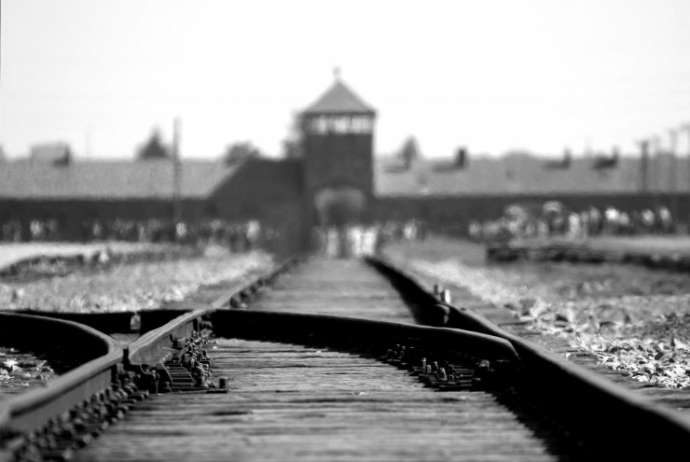Sovražnost postaja politično orodje
Hatred is becoming a political tool
Written by Sonja Merljak Zdovc, translated by JL Flanner
Žalostnih ali grozljivih stvari, ki so se nam zgodile, se ne spominjamo radi.
We do not like to remember the sad or horrible things that happened to us.
A spomine je treba ohraniti, da ne pozabimo. Ljubljene osebe, ki je ni več. Ali tragičnih dogodkov, ki se ne smejo ponoviti.
But memories should be kept in mind so that we do not forget. A beloved person who is gone. Or tragic events that cannot be repeated.
Žalostne in grozljive stvari se namreč ne dogajajo samo enemu človeku, ampak tudi velikim skupinam ljudi.
Sad and horrible things do not only happen to one person, but also to large groups of people.
Med takimi je holokavst.
Among these is the Holocaust.
Z besedo holokavst označujemo množični poboj Judov in pripadnikov nekaterih drugih narodov, ras ali etničnih skupin med drugo svetovno vojno.
The word Holocaust denotes the mass murder of Jews and members of some other nations, races or ethnic groups during World War II.
Mnoge med njimi so ubili v koncentracijskem taborišču Auschwitz. Preživeli so tisti, ki so dočakali 27. januar 1945. Takrat so ruski vojaki vkorakali v taborišče in jih osvobodili.
Many of them were killed in the Auschwitz concentration camp. Those who survived until January 27, 1945 lived. At that time, Russian soldiers marched into the camp and freed them.
Prav zaradi grozot, ki so se zgodile med drugo svetovno vojno, so po njej sestavili Splošno deklaracijo o človekovih pravicah. V tej piše, da se vsi rodijo svobodni in imajo enake pravice.
It was precisely because of the horrors that took place during the Second World War that the General Declaration on Human Rights was drawn up. It says that all are born free and have the same rights.
Vsako leto 27. januarja po svetu pripravijo številne dogodke v spomin in opomin.
Every year, on 27 January around the world, numerous events are prepared to remember and mark the events.
V Evropski komisiji so pred tem dnem objavili rezultate raziskave o mnenju Evropejcev glede antisemitizma. Ta je pokazala na velik razkorak v doživljanju antisemitizma. 89 odstotkov Judov pravi, da se je antisemitizem v zadnjih petih letih močno povečal. Enako meni 36 odstotkov splošne javnosti.
Before this day, the European Commission published the results of a survey on the opinions of Europeans on anti-Semitism. This has shown a huge gap in the experience of anti-Semitism. Eighty-nine percent of Jews say that anti-Semitism has increased sharply over the past five years. At the same time, only 36% of the general public think this way.
Povprečno le štirje od desetih Evropejcev menijo, da je holokavstu v šolah namenjene dovolj pozornosti, 34 odstotkov vprašanih pa jih ne ve, da je zanikanje holokavsta kaznivo dejanje.
On average, only four out of ten Europeans believe that the Holocaust is given enough attention in schools, and 34% of respondents do not know that Holocaust denial is a crime.
Po besedah prvega podpredsednika Komisije Fransa Timmermansa sovražnost spet postaja politično orodje, judovske skupnosti pa prepogosto živijo v strahu pred diskriminacijo, zlorabo in celo nasiljem.
According to the First Vice-President of the Commission, Frans Timmermans, hostility is again becoming a political tool, and the Jewish communities are too often living in fear of discrimination, abuse and even violence.
Read more stories and improve your Slovene at Časoris, while all our dual texts can be found here.







